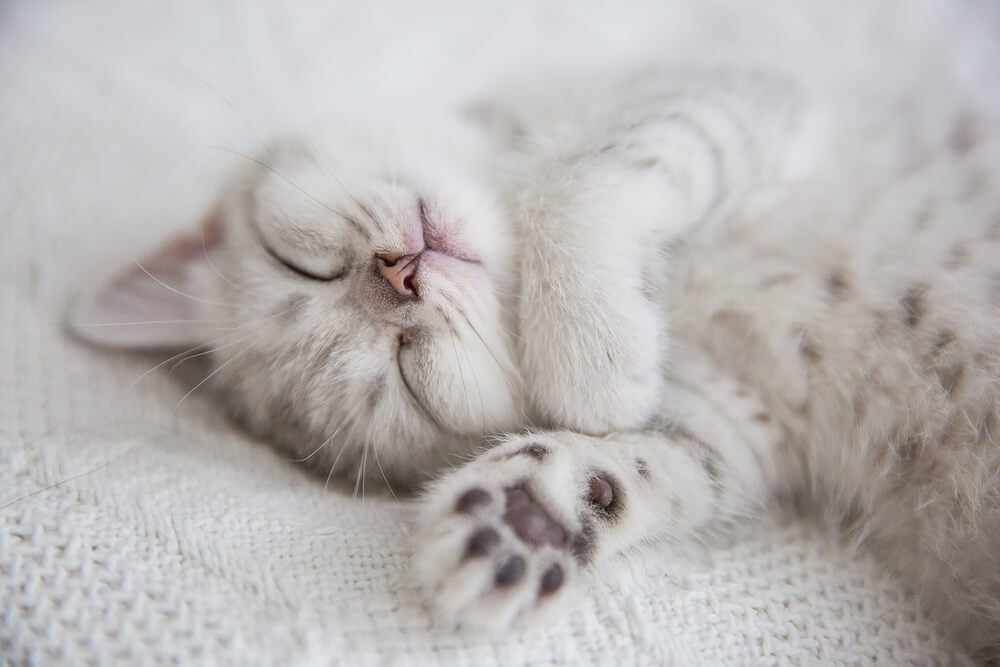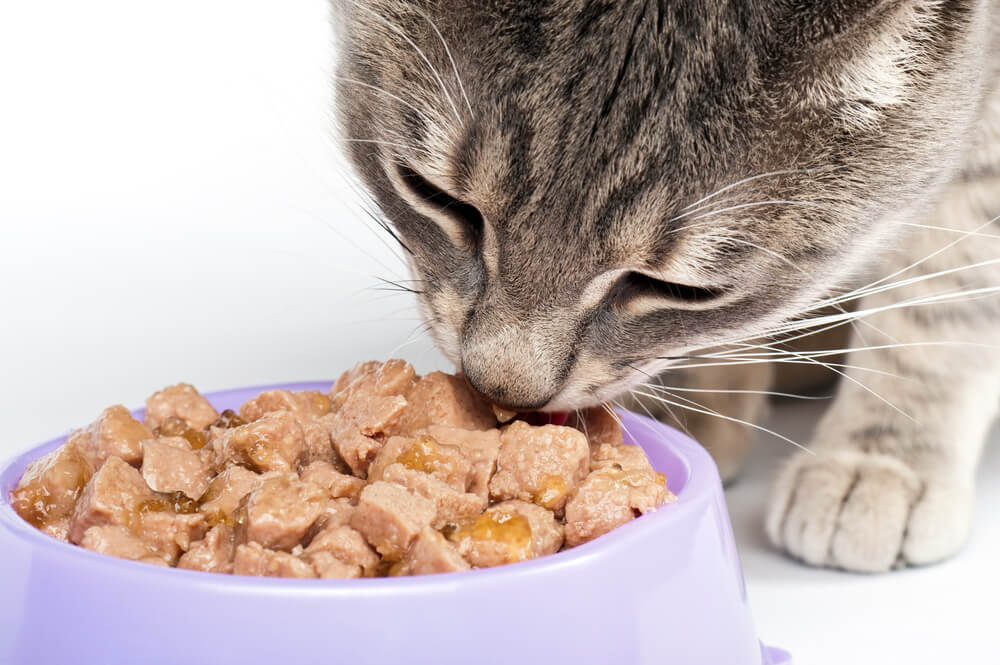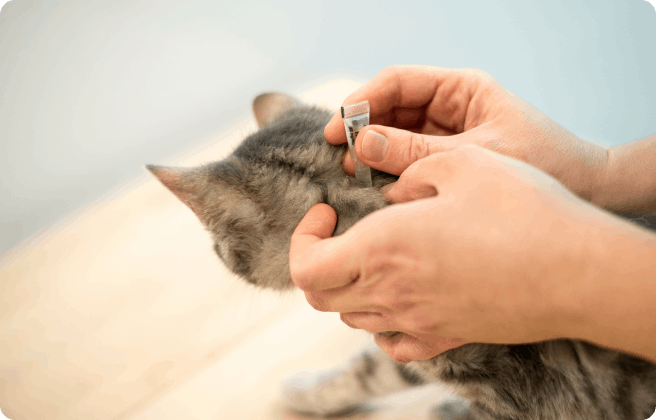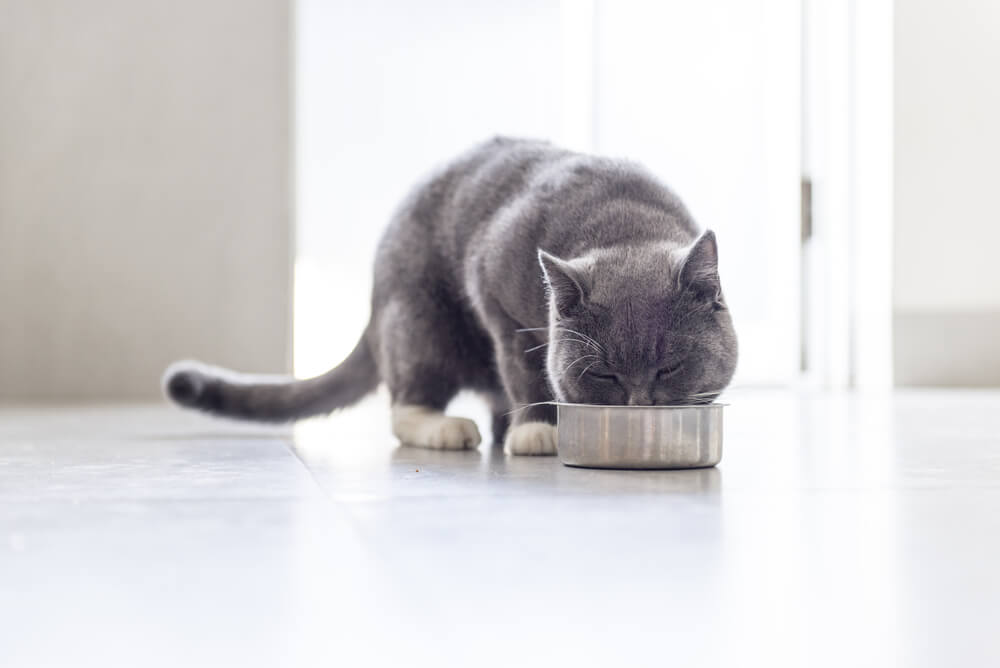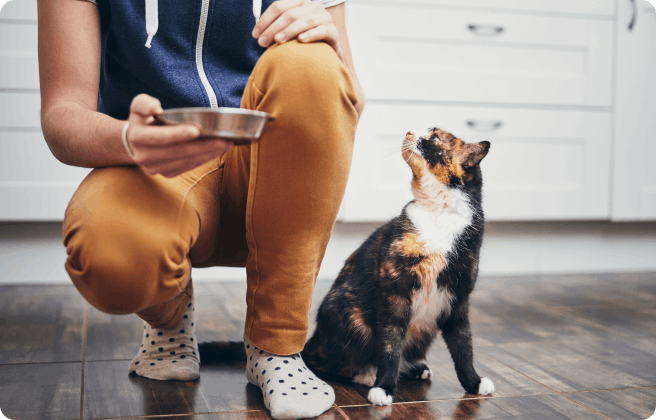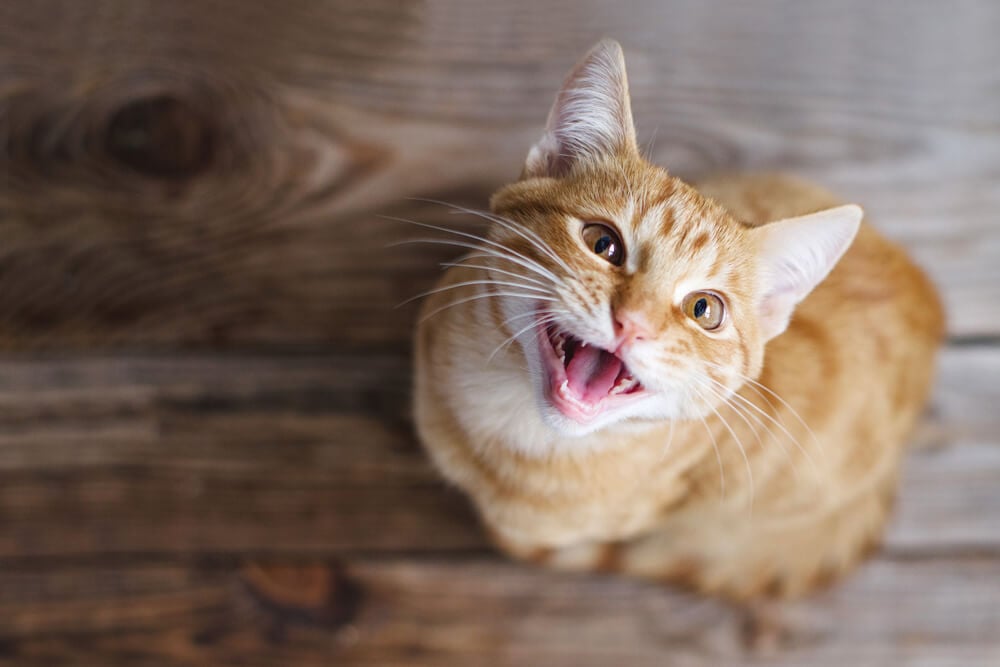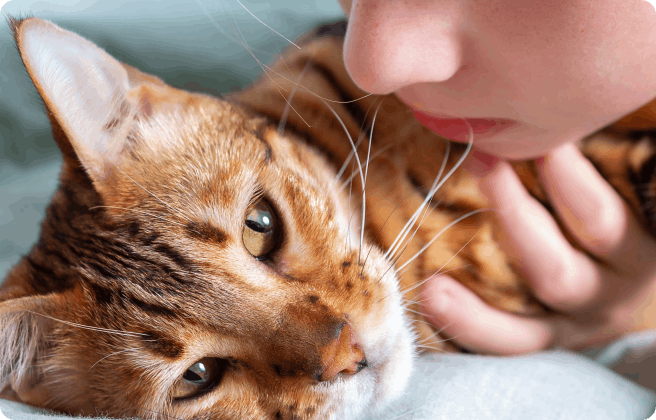
The bad news is constipation in cats is one of those symptoms that has no single cause — it can be down to dehydration or a sedentary lifestyle, but alternatively, it can even be psychological or the side-effect of a chronic medical condition. The more optimistic way to look at it is it’s something that can be treated and alleviated relatively easily.
Here’s all you need to know about your cat and constipation.
How do I know when my cat has constipation?
When all is well with your cat, their visits to the litter tray should be swift and seamless. This all changes when they’re suffering from constipation and it becomes more challenging for them to pass a stool, not to mention painful and potentially dangerous if left untreated.
How can a parent be sure this is happening? Unless you catch your cat straining first-hand or you see small, hard feces in their tray, you should also be aware that vomiting, abdominal pain, decreased appetite and little interest in hanging around with you are also telltale signs that their insides aren’t exactly running smoothly.
What’s causing my cat’s constipation?
Litter trays
Thankfully, there are things you can do at home to help your cat with this issue and prevent it from happening in the future. Sometimes, it can be down to something as small as the litter tray — not that it’s a little thing in the eyes of your cat. Just as humans are reluctant to use a dirty bathroom, cats also have high standards when it comes to hygiene and might stop going altogether if their tray’s not cleaned frequently enough.
Alternatively, it might be down to the placement of the litter tray instead. Cats need a bit of peace and privacy to do their business, so make sure their tray is in a quiet location away from busy corridors and things that may inadvertently fright them — buzzers from electronic appliances, for instance.
Lack of fiber
A lack of dietary fiber can contribute to constipation in cats. Fiber helps add bulk to the stool and promotes regular bowel movements. Diets that are low in fiber or consist primarily of highly processed foods may increase the risk of constipation.
Hairballs
Cats that groom themselves excessively may develop hairballs, which can accumulate in the digestive tract and obstruct normal bowel movements. This can lead to constipation.
Obesity
Overweight or obese cats may be more prone to constipation. Extra weight can put pressure on the digestive system, affecting proper bowel movements.
Dehydration
At the same time, you should consider your cat’s hydration, as this plays an integral role in a healthy digestive system. Many cats don’t drink enough water and you can encourage them to address this by perhaps refilling their bowl regularly so it’s always clean and placing different types of receptacles around the house. Water fountains sometimes work to get your cat drinking away, while switching to wet cat food is another way of boosting their fluid intake.
Inactivity
Exercise, or a lack thereof, could also be a factor in your cat’s constipation. Animals that are too sedentary sometimes find it difficult to go to the toilet and if you suspect your cat is taking things a little too easy, have a think about placing new toys and scratching posts around the home to get them up on their feet for a while. Just as little as a quarter of an hour’s playtime a day could help their intestines function a bit better.
Deeper medical issues
There are factors entirely out of a parent’s control, however. Constipation can be a sign of something not quite right inside your cat’s body and these can range from physical causes that make it painful for them to defecate and metabolic disorders to nerve damage or an obstructed colon. A vet will keep all of these in mind when diagnosing the exact cause.
Medications or changes in routine
Some medications, such as certain pain medications or medications with constipating side effects, can cause constipation in cats. Changes in routine, environment, or diet can also disrupt the normal bowel habits of cats and contribute to constipation.
How can I treat my cat’s constipation?
If you’ve tried everything in your power and are still seeing regular bouts of constipation in your cat — or it’s been more than a day since your cat has been able to defecate — you should go to the vet. Not only will they be able to advise on your cat’s diet and its fiber content, but they will also be able to check whether there isn’t something else at play. Depending on the severity of their constipation, your cat might need medical intervention to remove blocked feces, whether that be laxatives, an enema or even a small operation if it’s particularly bad.
After the blockage is removed, the next task is working out the original cause of the constipation. The vet will be able to run tests to see if it’s the symptom of an underlying disease, but if it’s not, parents can start thinking about making changes to their cat’s lifestyle. The good news is that a balanced diet, plenty of water and a bit of exercise are rather good for your cat anyway and will help them fight off lots of other ailments at the same time.
If you notice signs of constipation in your cat, such as infrequent or difficult bowel movements, straining in the litter box, or hard and dry stools, it’s important to consult with a veterinarian. They can determine the underlying cause and provide appropriate treatment or recommendations to alleviate the constipation and promote regular bowel movements.
We uphold the highest editorial standards when creating the authoritative content pet parents rely on and trust.
Every piece of clinical content on the Cat Food Advisor is reviewed by our certified Veterinary Advisory Board, which consists of licensed veterinarians and medically certified specialists.
Our reviews are completely independent; we are not paid by any pet food company to promote their products favorably. We do not accept money, gifts, samples or other incentives in exchange for special consideration. For more information see our Disclaimer & Disclosure page.




